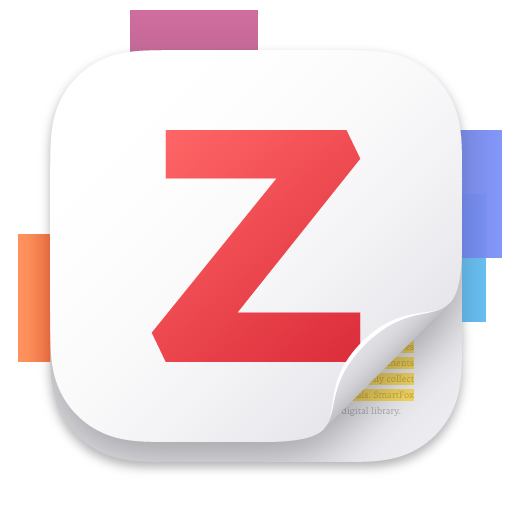The Role of the Integration of Islamic Education and Technology in Developing Competence and Personality of Muslims in the Digital Era
DOI:
https://doi.org/10.5281/Keywords:
Integration of Islamic Education, Technology, CompetencyAbstract
The integration of Islamic education and technology plays a crucial role in developing the competencies and shaping the character of Muslims in the digital era. This study aims to examine how the integration of technology into Islamic education can enhance the quality of learning, expand access to information, and optimize the development of students' character. By utilizing technology, such as digital learning platforms, mobile applications, and social media, Islamic education can be delivered in a more engaging and relevant manner for the younger generation living in the digital world. Technology enables more interactive, flexible, and efficient learning methods while introducing Islamic values that can be applied in daily life in the online space. This study uses a qualitative approach with literature review and interviews to analyze how the combination of Islamic education and technology can support the development of academic competencies, digital skills, and resilient moral character in students. The findings indicate that this integration not only enhances technical skills and religious knowledge but also helps students better understand and apply Islamic teachings in facing the challenges of the modern world. Therefore, the integration of Islamic education and technology holds great potential in preparing a generation of Muslims who are capable of adapting to technological advancements without compromising strong religious values
Downloads
References
Al-Manaf, Y. (2021). Islamic Development of Perspective Educators and Education Personnel Ahmad Hatta, Abas Mansur Tamam, Ahmad Syahrul Alim. Rayah Al-Islam, 5(02), 760–778. https://doi.org/10.37274/rais.v5i02.499
Bulu, Taqwa, Rajab, M., & Bulu, R. M. (2021). Students' Attitudes towards Mental Health Development Based on Islamic Guidance and Counseling. Journal of Conception, 10(3), 174–186. https://www.p3i.my.id/index.php/konsepsi/article/view/103
Cahyani, A. D. N., & Rasydah, A. (2020). Efforts to Increase Reading Interest in Children Aged 4-5 Years Correlated with Three Education Centers. Early Horizons: Journal of Early Childhood Education, 11(2), 110–116. https://doi.org/10.17509/cd.v11i2.21927
Cahyono, B. T. (2022). Study Management to Improve the Motivation of Educators Through Merdeka Belajar. Al-Fikrah: Journal of Educational Management, 10(1), 1. https://doi.org/10.31958/jaf.v10i1.5490
Faizin, M., Sholihah, A., Puspita, N., & Cantika, I. (2022). Interaction patterns of educators and students in the 21st century from the perspective of Al-Ghazali's Islamic educational thought. At Turots: Journal of Islamic Education, 4(2 December), 303–316. http://journal.stitmadani.ac.id/index.php/JPI/article/view/142
Fatahuddin, A. P., & Hamka, S. H. (2022). The Concept of Muslim Personality and Its Relevance to Character Education; Thematic Educational Interpretation Study. Al-Iltizam: Journal of Islamic Religious Education, 7(1), 112–132.
Hakim, I. A., Waty, E. R., Husin, A., & . S. (2020). Study of Implementation of Standards for Implementing Equal Education Programs at Community Learning Activity Centers (Pkbm) in South Sumatra. Penmas Torch Journal: Out-of-School Education, 3(1), 181. https://doi.org/10.32832/oborpenmas.v3i1.2981
Harahap, N. R., & Wulandari, P. (2022). Personality Competencies of Islamic Religious Education (PAI) Teachers in Developing Student Morals at MTs Islamiyah Petangguhan. Tajribiyah: Journal of Islamic Religious Education, 1(2), 85–92. https://univamedan.ac.id/ejurnal/index.php/Tajribiyah/article/view/261
Harahap, R. M. (2017). Formation of Muslim personality from the perspective of Islamic educational philosophy. FIKROTUNA: Journal of Islamic Education and Management, 6(02).
Hikmah, J., Education, J., & Vol, I. (2022). The Urgency of the Value of Islamic Religious Education and the Educational Environment in Forming Religious Culture Syarifah Rahmah, Muhammad Anggung Manumanoso Prasetyo. … Islamic Education, 11(1), 116–133. https://ojs.staituankutambusai.ac.id/index.php/hikmah/article/view/321%0Ahttps://ojs.staituankutambusai.ac.id/index.php/hikmah/article/viewFile/321/205
Ikhwan, I. (2018). Character education from the perspective of the Koran. Mumtaz: Journal of Al-Quran and Islamic Studies, 2(1), 1–26.
Indrawati, Y. T., Sujino, S., & Dacholfany, M. I. (2021). Quantum Teaching Learning Model in Islamic Religious Education Subjects. PROFETIK: Journal of Islamic Religious Education Students, 2(1), 24–30. https://doi.org/10.24127/profetik.v2i1.1830
Irawati, I., Setyaningsih, R., Rosyad, A. M., Juhji, J., & Herlinda, F. (2022). Relationship between Educators and Students from Al-Quran Perspective. Risâlah, Journal of Islamic Education and Studies, 8(1), 3088–3409. https://www.jurnal.faiunwir.ac.id/index.php/Jurnal_Risalah/article/view/230
Junita, J., Zainuddin, Z., Hajar, I., Muti'ah, R., & Siregar, M. (2021). The Effectiveness of Teachers' Islamic Communication Principles in Developing the Communication Character of Class X MAN Rantauprapat Students. Jupiis: Journal of Social Sciences Education, 13(1), 78. https://doi.org/10.24114/jupiis.v13i1.19560
Lutfiah Hilalyani, N., Ja'far Nashir, M., & Gunawan, H. (2023). The Role of Islamic Religious Education Teachers in Developing Student Morals at MTs Muhammadiyah Blimbing, Sukoharjo Regency. Edusifa: Journal of Islamic Education, 9(2). https://doi.org/10.56146/edusifa.v9i2.125
Mangka, A., Amrah Husma, & Jahada Mangka. (2022). Environmental Conservation in the View of Islamic Sharia. BUSTANUL FUQAHA: Journal of Islamic Law, 3(2), 205–221. https://doi.org/10.36701/bustanul.v3i2.613
Musli'ah, M., Khulailiyah, A., & Lailiyah, N. (2022). The Role of Islamic Religious Education Teachers in Developing Student Morals at Matsna Karim Diwek Vocational School, Jombang. Irsyaduna: Journal of Student Studies, 2(1), 39–47. https://doi.org/10.54437/irsyaduna.v2i1.419
Pane, A., & Nailatsani, F. (2022). Teacher Code of Ethics According to an Islamic Perspective. Pedagogical Forum, 13(1), 24–38. https://doi.org/10.24952/paedagogik.v13i1.3522
Paputungan, N., Mansur, M., Asnidar, A., Purnamawaty, R., Payuhi, F., & Rahman, A. (2022). Communication Ethics between Teachers and Students in the Perspective of Islamic Education. Collaborative Journal of Science, 5(6), 365–373. https://www.jurnal.unismuhpalu.ac.id/index.php/JKS/article/view/2519
Rosyadi, A. R., Supriadi, D., & Rabbanie, M. D. (2021). Review of the Tricenter of the Educational Environment from an Islamic Education Perspective. Islamic Education: Journal of Islamic Education, 10(01), 563–580. http://jurnal.staialhidayahbogor.ac.id/index.php/ei/article/view/1329
Sahara Rita Dakwah, F., Ilmu, D. A. N., Negeri, U. I., & Lampung, R. I. (2021). Mental Development to Increase the Emotional Stability of Indonesian Navy Soldiers in the Islamic Guidance and Counseling Approach at Kimal Headquarters, Kotabumi, North Lampung. repository.radenintan.ac.id. http://repository.radenintan.ac.id/id/eprint/16501
Sarinawati, A. (2023). Developing Students' Religious Character through Islamic Personal Development Activities at SMP IT Raudhatul Ulum Sakatiga Indralaya Ogan Ilir. MODELING: Journal of the PGMI Study Program. http://jurnal.stitnualhikmah.ac.id/index.php/modeling/article/view/1418%0Ahttps://jurnal.stitnualhikmah.ac.id/index.php/modeling/article/download/1418/1052
Sarnoto, A. Z., & Fadhliyah, N. (2022). Educators' Social Competence in the Al-Quran Perspective. Ulumuddin: Journal of Islamic Sciences, 12(2), 305–322. https://doi.org/https://doi.org/10.47200/ulumuddin.v12i2.1426
Sarnoto, A. Z., & Fadjar, D. N. M. (2022). Quran-Based Professional Teacher Training. Islamic Education.... http://jurnal.staialhidayahbogor.ac.id/index.php/ei/article/view/1404%0Ahttps://jurnal.staialhidayahbogor.ac.id/index.php/ei/article/download/1404/1021
Suseno, A. K. (2021). Islamic Religious Education Teacher Strategy in Fostering Noble Morals in SMAN 1 Bandung Students. Journal of Social Science, 1(7), 705–714. https://doi.org/10.59188/jurnalsosains.v1i7.157
Touwe, N. A. (2022). Islamic Religious Education Teacher Innovation in Moral Development of State High School 47 Central Maluku students. repository.iainambon.ac.id. http://repository.iainambon.ac.id/2612/
Yusof, N. A., Mastor, K. A., Haron, H., Basir, A., & Alias, J. (2021). Anime and Social Disorders among Secondary School Adolescents. Journal of Social Science and Humanities, 4(2), 6–13. https://doi.org/10.26666/rmp.jssh.2021.2.2










